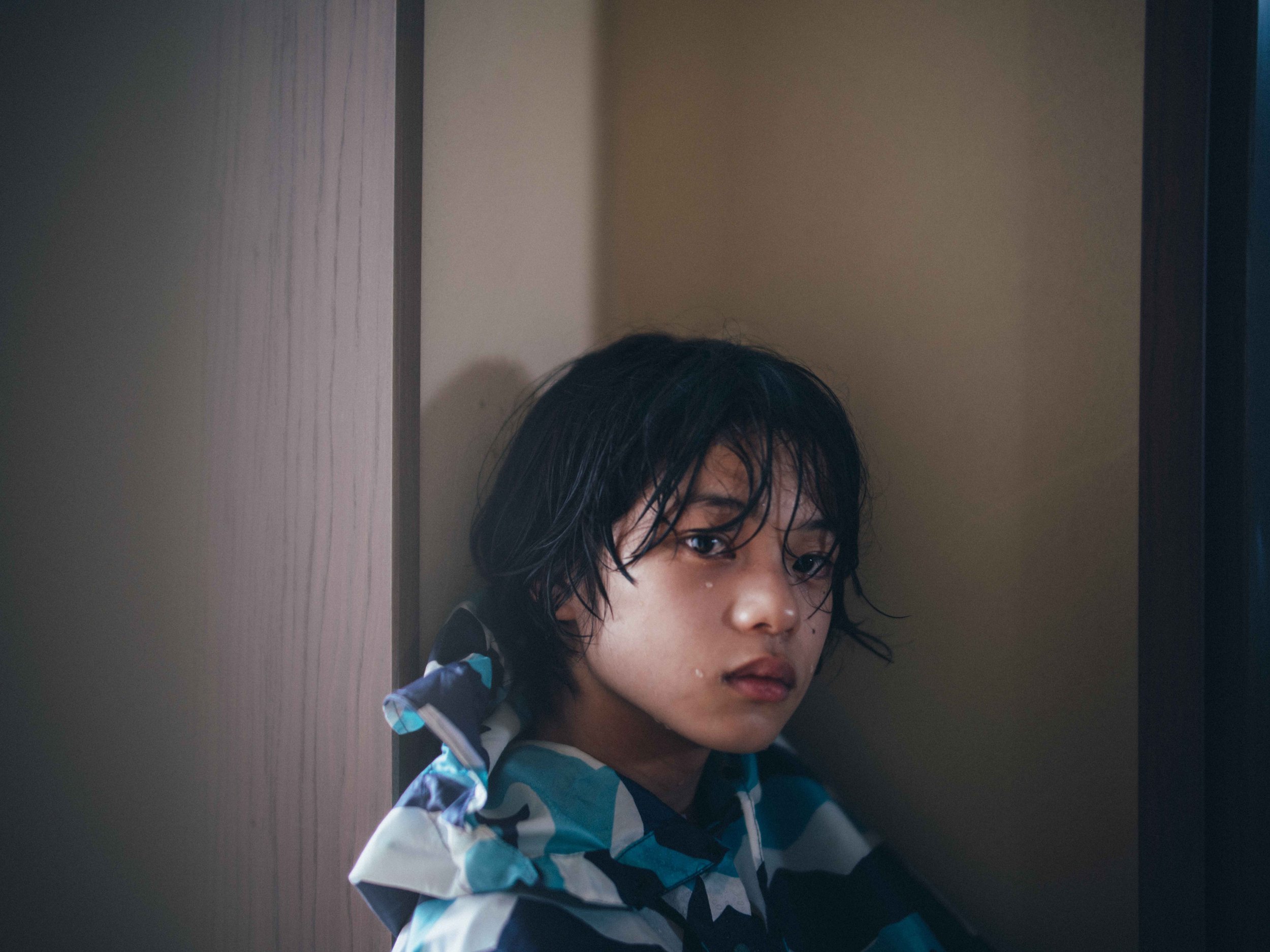Monster: Hirokazu Kore-eda Paints a Japanese Schoolboy's Troubled Life From Every Angle
By Karen Gordon
Rating: A minus
Japanese auteur Hirokazu Kore-eda makes thoughtful, quiet, affecting movies about ordinary people navigating challenging moments in their lives.
His best-known films, including the Oscar nominated Shoplifters (2018) mostly deal with families, nuclear or acquired, and the way the shifts and challenges affect everyone in the circle. His magic power is building stories from the small moments that feel so familiar and yet add up to movies that are gently, but deeply resonant.
Minato (Soya Kurokawa) has a story to tell, which expands depending on who is doing the telling.
This is true of his latest, the absorbing, sensitive, and enigmatic Monster, which won best screenplay for Yûji Sakamoto and the Queer Palm at the Cannes Film Festival earlier this year.
The film looks at a situation arising from the problems of a young student. Over the course of the film, Kore-eda shifts perspective several times, resetting the story back to the beginning, and following several other characters.
At the center of the film is a Fifth Grade student, Minato (Soya Kurokawa), who lives with his loving, lively widowed mother Saori (Sakura Ando). She gets concerned when Minato, out of nowhere, starts to behave in ways that worry her. He suddenly seems detached, and calls himself a monster, saying he has a pig’s brain in his head. When pressed he says that this is coming from his teacher, Mr. Hori (Eita Nagayama), who he says, also hit him in school causing a nose bleed.
Alarmed, Saori goes to the school to meet with the principal. Mrs. Fushimi (Yûko Tanaka) is polite, but oddly detached, like a woman in a waking coma. Other staff members join the meeting, including the young Mr. Hori, but in such a flurry that it is jarrying to Saori. They’re overly polite, to the point where it feels almost surreal, but no one seems interested in addressing her problems, or giving her straight answers.
At this point Kore-eda shifts the story, so that we’re following Mr. Hori, starting from a point before the issues with Minato began. We’re not looking at his perspective, but rather following him along so that we get a different view, a bigger picture of the bits and pieces that we’ve seen through Minato’s telling.
From a broader perspective, we see what went on in Mr. Hori’s class, whether he actually hit Minato, and the way the allegations of abusive behaviour affect him.
We also get closer to the core issues affecting Minato. He has a cautious friendship with a classmate Yori (Hinata Hiiragi), an unfailingly sweet and sunny kid, but smaller and therefore often bullied.
The story shifts again to give us another perspective, and again a new understanding of the people involved in this little circle.
Monster is a difficult film to boil down to a single thought, a single character’s plight.
If the boys are the core of the story, this could have been told in a conventional straight-forward narrative. But, by resetting the story to focus on the key characters involved in Minato’s issues, Kore-eda and screenwriter Sakamoto, asks us to consider what we think we know, of the situation and the people involved.
All of this is done in a movie that seems to be built from small, quiet and understated moments, and never feels manipulative or veers into melodrama. In the process, he has created a movie of deep kindness and compassion.
This is, for me, the genius of Kore-eda. His ability to capture those moments, those pieces of life with such a light touch, to make them so affecting and resonant.
And he is helped mightily in this by a uniformly formidable cast, and a beautiful soundtrack, the final one by Ryuichi Sakamoto. The film is dedicated to the late composer.
Compassion, and a deep feeling for a common humanity, is a hallmark of Kore-eda’s style. His movies, including Monster, suggest that most ordinary lives are not so ordinary when you dig deeper. We're all working through something, or carrying baggage that gives us a perspective that may hold us back or cause us pain. Our impulse to judge ourselves and others can be harsh.
We all may feel like monsters at times, but the truth is that we’re merely fallible and beautifully human.
Monster, directed by Hirokazu Kore-eda, written by Yûji Sakamoto, music by Ryuichi Sakamoto. Starring Sakura Ando, Soya Kurokawa, Yûko Tanaka, Eita Nagayana, Hinata Hiiragi.
In theatres, Friday, December 1.



